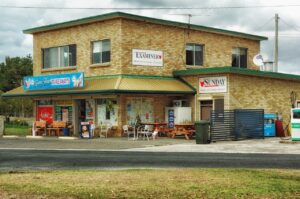If one thinks of investing in real estate, the most common trend is, to buy a value-add single-family residence (SFR). Investing in SFR for consistent positive cash flow and appreciation, could be a great strategy and works really well for some people. However, the big challenges would be timing the market, finding lucrative deals, funding deals (if you need additional capital), managing minor or major rehab, managing the property and tenants (if you buy n’ hold) or find a buyer (if you fix n’ flip) and above all, scalability.

If one thinks of investing in real estate, the most common trend is, to buy a value-add single-family residence (SFR). Investing in SFR for consistent positive cash flow and appreciation, could be a great strategy and works really well for some people. However, the big challenges would be timing the market, finding lucrative deals, funding deals (if you need additional capital), managing minor or major rehab, managing the property and tenants (if you buy n’ hold) or find a buyer (if you fix n’ flip) and above all, scalabili

If one is looking to invest in real estate and doesn’t want to do any of the above, then another common option is investing in an Equity REIT (Real Estate Investment Trust). A REIT is a corporation that owns and manages a portfolio of real estate properties and mortgages. Anyone can buy shares in a publicly-traded REIT through their stockbroker or a stock trading platform such as TD Ameritrade, eTrade.
Both of the above investment options have been traditionally used by the majority of investors to gain exposure in the US real estate market. But looking back to the market crash of 2008, a pertinent question comes to mind.….
How would these real estate investment options fare during the next downturn?

Sources: US Dept. of Labor (BLS), National Association of Realtors (NAR), US Bureau of Census.
If there is an economic correction, which could happen in the foreseeable future. A broad market downturn would affect all asset classes in some way or the other. Based on empiricaldata and forward projections, both SFR and REIT investments could take a substantial hit and so would one’s real estate investment portfolio. We all have witnessed that (and some have sadly experienced it) during the last downturn.
Even if one picked the best REIT using cutting edge market research, or a SFR based on neighborhood research, deal analysis, comps…does one have any control, over plummeting prices of an Equity REIT or diminishing comps and values of a SFR, during a broad market decline?
Apart from selling, could we do anything to minimize the negative impact of a downturn on our real estate investments?

the answer is…..
Investing in Commercial Multifamily Apartments
Though investments in commercial multifamily apartments (5+ units) come with a certain amount of risk and are subject to market declines; as a real estate investor, one has more control over value preservation of a multifamily apartment property, than a SFR or an Equity REIT.
Here’s why….
During a downturn, many people switch from home ownership to renting (it’s unfortunate, but true). It’s also tougher to qualify for a new home loan during downward real estate cycles. This results in an increased demand for rental apartments in all neighborhoods. Higher demand leads to higher rents and a higher NOI. Net Operating Income (NOI) equals all revenue from the property, minus all operating expenses.
Millennials, the nation’s largest generation, are choosing to rent versus buy due to record levels of student loan debt, high home prices, and the desire for flexibility and mobility. The Millennial market offers a continuous growth opportunity for multifamily housing.
Unlike SFR properties, which are valued on the basis of similar home prices (comps); Commercial Multifamily Apartment properties are valued based on NOI.That means, during a downturn, when all SFR home values are plummeting due to other lower comps, multifamily apartment assets could hold their value or may decline slightly, if the NOI of that property increases or stays the same. One has more control over preserving the value of a multifamily asset than a SFR or an Equity REIT, during a broad market downturn.
Any direct investment in Commercial Multifamily Apartments is backed by a fundamentally strong cash-flowing physical asset; which also doubles as a hedge, and could limit ones investment risk, during a broad market downturn.




